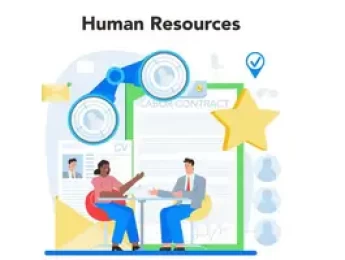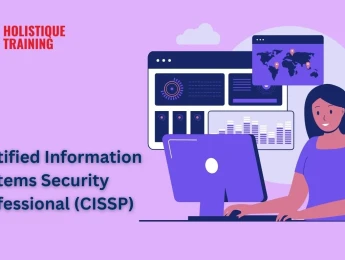Human Resources Professionals play a pivotal role in an organisation's success. Navigating the workplace's complexities requires a diverse skill set, including communication skills. HR professionals need to convey information effectively, listen to employee concerns, and mediate conflicts.
Strong interpersonal skills are essential for building positive relationships and fostering a collaborative work environment. A deep understanding of employment laws and regulations is crucial for ensuring compliance and mitigating legal risks.
HR professionals also need analytical skills for data-driven decision-making, especially in areas such as talent acquisition, performance management, and workforce planning. Adaptability is also key, as HR professionals must navigate evolving workplace trends and technologies, remain confidential, and make fair and ethical decisions to meet strategic company goals.
Upon completion of this course, participants will be able to:
- Understand the intricacies of communication and articulate its significance in the realm of HR professionals.
- Elaborate on the fundamental principles of business and adept report writing.
- Generate HR correspondence and sample reports with effective written communication.
- Utilise foundational conflict resolution skills, incorporating techniques of influence.
- Illustrate the significance of customer service in HR and outline the steps to cultivate the necessary mindset.
This course is designed for anyone responsible for human resources processes and practicalities within a business environment. It would be most beneficial for:
- HR Professionals
- HR Managers
- HR Business Partners
- Line Managers
- Auditors
- Recruiters
- Secretaries
- Administrators
This course uses a variety of adult learning styles to aid full understanding and comprehension. Participants will take part in interactive presentations to understand exactly what’s required to create an effective HR department and discuss the risks and problem areas that often arise.
Participants will then review real-world case studies and data to understand the recent trends in HR development and conduct role-playing activities to strengthen their verbal and written communication skills in order to aid communication with colleagues, stakeholders and recruiters.
Day 5 of each course is reserved for a Q&A session, which may occur off-site. For 10-day courses, this also applies to day 10
Section 1: What’s Required in HR
- Legal frameworks in HR.
- Employee relations essentials.
- Recruitment and selection best practices.
- Performance management techniques.
- Diversity and inclusion in the workplace.
- HR policies and compliance.
- Employee benefits and compensation.
- Workplace health and safety.
- HR technology and tools.
- Professional ethics in HR.
- Managing changes and updates in policies.
Section 2: Advanced Communication Skills
- Advanced verbal communication techniques.
- Non-verbal communication mastery.
- Effective presentation skills.
- Advanced negotiation strategies.
- Tailoring communication for diverse audiences.
- Handling difficult conversations with finesse.
- Cross-cultural communication competence.
- Emotional intelligence in communication.
- Public speaking and influencing skills.
- Advanced written communication proficiency.
Section 3: Organisation & Time Management
- Principles of effective organisation.
- Time management strategies.
- Prioritising tasks and responsibilities.
- Goal setting and tracking progress.
- Creating efficient workflows.
- Delegation skills for effective teamwork.
- Balancing work and personal commitments.
- Utilising technology for the organisation.
- Overcoming procrastination.
- Stress management in the workplace.
- Addressing common challenges in policy implementation.
- Auditing and assessing policy effectiveness.
- Feedback mechanisms for policy improvement.
Section 4: Developing Stakeholder Relationships
- Understanding stakeholder engagement.
- Building and maintaining relationships.
- Identifying key stakeholders.
- Effective communication with stakeholders.
- Managing stakeholder expectations.
- Conflict resolution in stakeholder interactions.
- Stakeholder feedback and input.
- Cultivating trust and credibility.
- Adapting communication styles for different stakeholders.
- Strategic stakeholder management.
Section 5: Essential HR Analytics
- Introduction to HR analytics.
- Key HR metrics and indicators.
- Data collection methods in HR.
- Data analysis techniques for HR insights.
- Predictive analytics in HR.
- Using HR analytics for decision-making.
- Tools and technology for HR data analysis.
- Ethical considerations in HR analytics.
- Communicating findings through HR reports.
- Continuous improvement in HR through analytics.
- Technology tools for policy sign-off processes.
- Ensuring accessibility and understanding.
- Tailoring policies for organisational culture.
Section 6: Policy & Procedure Sign Off
- Understanding policy and procedure frameworks.
- Importance of policy adherence.
- Legal and regulatory compliance.
- Significance of employee acknowledgement.
- Creating effective policy documentation.
- Implementing a sign-off process.
- Communication strategies for policy updates.
- Monitoring and enforcing policy adherence.
- Handling exceptions and deviations.
- Continuous improvement in policies and procedures.
- Training employees on policies and procedures.
- Document control and version management.
Upon successful completion of this training course, delegates will be awarded a Holistique Training Certificate of Completion. For those who attend and complete the online training course, a Holistique Training e-Certificate will be provided.
Holistique Training Certificates are accredited by the British Assessment Council (BAC) and The CPD Certification Service (CPD), and are certified under ISO 9001, ISO 21001, and ISO 29993 standards.
CPD credits for this course are granted by our Certificates and will be reflected on the Holistique Training Certificate of Completion. In accordance with the standards of The CPD Certification Service, one CPD credit is awarded per hour of course attendance. A maximum of 50 CPD credits can be claimed for any single course we currently offer.
- Course Code PH1-126
- Course Format Classroom, Online,
- Duration 5 days














